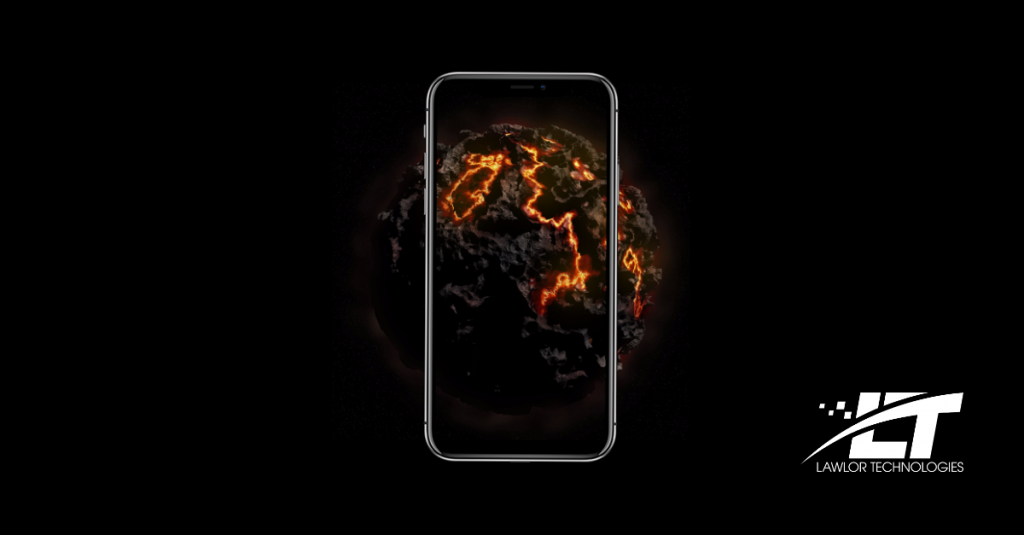It’s been 10 years since mobile apps became available for our smart phones as 2008 marked the launch of the app stores. This allowed developers to build apps for consumers to use including highly addictive games and whole new social media platforms such as Instagram and Snapchat. This changed the way we do things day-to-day and is interesting to think how we would cope without it in the year 2018. But how long will this last and when will we say goodbye to mobile apps?
As of 2018, there has been a recorded 2.8 billion people worldwide who have a smartphone and 180 billion apps have been downloaded on the Apple App Store alone. These numbers are continuing to grow with no signs of slowing down, with an expected 352.9 billion app downloads by 2021 – but mobile apps won’t be here forever as smart phones will change and eventually be replaced by new technologies.
As an app development agency, we are always looking to stay ahead of the curve and evolve as technology changes. Not only are we highly interested in the next big thing and tech in general, but from a longevity standpoint we have to future proof our business. Did you know that the mobile phone company Nokia was a single paper mill company when it was established in 1865 and sold toilet roll paper in the 1960’s – a great example of company evolution.
Looking back over the past 100 years, we can see how tech and consumer content has evolved. The radio was the main source of day-to-day information and entertainment back in the 1930’s, 1940, and 1950’s, until we saw the rise of the television. This was then followed by computers and the internet which was made easily accessible anywhere in the world by reaching into your pocket. How far we have come.
Goodbye App Store, Hello Progressive Web Apps (PWA)
Progressive Web Apps are mobile apps that are delivered through the web, meaning there is no need to download the app from the app store.
A PWA offers the same user experience as a native application, but with added advantages:
- Higher efficiency
- Small amount of device storage needed
- Scripts that run in the browser’s background mean faster load times even with low connectivity
- Works across many different devices as it is web based (write code once for all platforms)
- Access the app from both mobile and desktops
Although progressive web apps have been around since 2015, the hype around this has only just begun with the likes of Google Chrome and Apple’s Safari browser recently adding support for PWA.
Progressive Web Apps are a service Lawlor Technologies will be offering soon to our clients as consumers slowly phase out of the use of the app stores.
Beyond The Smartphone
It’s no secret that augmented reality and virtual reality are something that is regarded as the next big thing. The application of this to businesses has real potential such as using virtual reality to simulate flights for trainee pilots and the use of augmented reality to increase efficiency in the workplace. There is a few problems that are currently holding back these technologies reaching their full potential:
- The high cost of these devices
- They are not light-weight
- and are therefore not yet mainstream, like the smartphone is
VR headsets have their own app store, opening up opportunity to develop apps for consumers in a new way, but as it is not yet mainstream the user reach will be limited. As the technology improves we will see this become more mainstream and completely change how we interact with people online and consume content.
Alexa, what is a smartphone?
As mentioned in previous blog posts, we are passionate about voice technology and see great future potential in home assistants such as Alexa and Google Home. It has been said that by 2020, 50% of searches will be done using voice as appose to typing it into your mobile device. The thing people value most is time and voice technology allows for multi tasking and is easy to to find out information fast. Again this is not something that is mainstream yet but as the technology gets better we will see it used for more applications. Applying voice technology to wearable devices such as watches, glasses and earphones, will help us take our voice assistants anywhere without the need for a smart phone.
The mobile app will evolve and will look different in 20 years time, but still provide us will the information we need. We can look at a mobile app as an application we can take with us remotely and doesn’t necessarily have to have a graphical user interface.
We will always thrive to develop technology to suit both client and consumer needs, providing the best user experience and reaching appropriate user audiences. We look forward to the future of technology and how our company will look 50 years from now.

